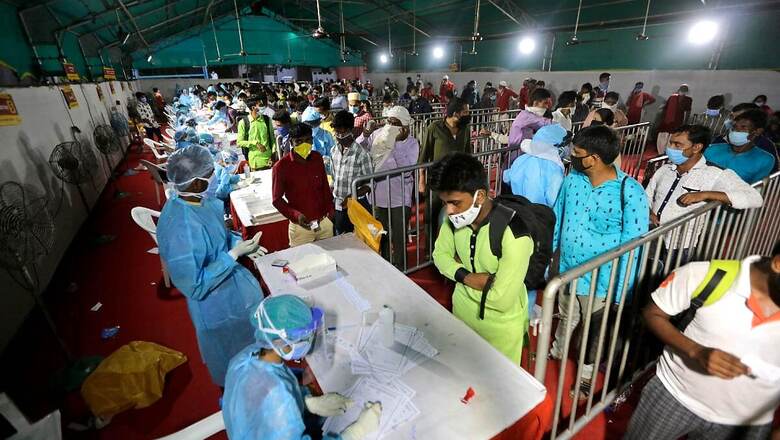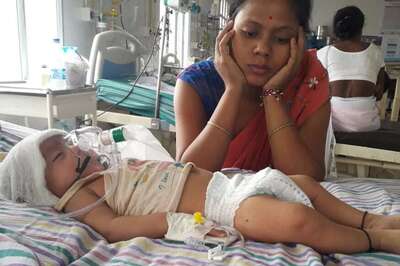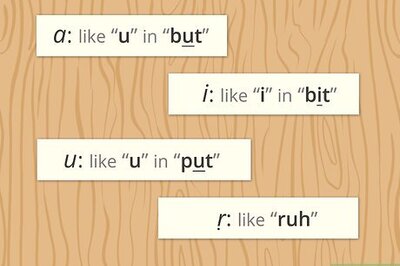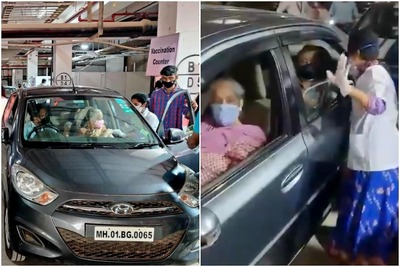
views
New Delhi: Close on the heels of the first case of reinfection confirmed in Hong Kong globally, scientists in India also confirmed instances of Covid-19 reinfection among healthcare workers in Greater Noida and Mumbai earlier this week. A pre-print study (ahead of peer-review) was published which talked about genome sequencing which confirmed that the healthcare workers were reinfected and that it was not a case of reactivation of the infection.
Scientists also found clear and significant genetic differences between the first and second viral RNA samples that were sequenced, suggesting mutations in the SARS-CoV-2 virus.
Institute of Genomics and Integrative Biology (IGIB), Delhi, conducted the genome sequencing of seven pairs of viral RNA samples and found that there were clear genetic differences. Two healthcare workers from Government Institute of Medical Sciences (GIIMS), Greater Noida and four healthcare workers from two Mumbai hospitals have been confirmed as cases of reinfection.
One of the genetic variants found in the second viral RNA sample of a healthcare worker from GIIMS was also found to be resistant to neutralising antibodies, preliminary results of the genome sequencing had shown. Scientists involved in the study said there needs to be more research and study on the mutations and variants to understand why reinfections were happening and, more importantly, to understand the implications of these variants on vaccines.
“These are clearly different strains and we have sequenced Mumbai samples too and they are different. We have conclusive evidence for seven pairs and in all of them, we see clear genetic differences between the first and second samples that were tested,” said Dr.Anurag Agarwal, Director, IGIB, Delhi.
Agarwal said it will be certainly interesting to see if the antibody resistant mutation is appearing in more instance and that it was important to know some of the causes behind reinfection and to study differences between the virus and host. “This will be relevant for vaccines. However, these cases might be rare from a public health perspective and a drop in the ocean,” Agarwal said.
The clinical definition of a reinfection is: A person who was symptomatic and tested positive with an RT-PCR, recovered and was cleared after an RT-PCR test, has been absolutely fine in the middle and has now again has Covid-19 disease after testing positive with another RT-PCR test.
To confirm reinfection, the nasal and throat swab samples collected from the healthcare workers during the first and second episode of reinfection were sequenced for genome analysis. In the case of the GIMS healthcare workers, the infection was asymptomatic at both times but the viral load was higher in the second episode. The healthcare had first tested positive in May.
“We have seen some mutations in the cases of reinfection and there were nine variations in the sample of one healthcare worker and 11 variations in the sample of the second healthcare worker. Since this issue requires a deeper study, on speculation we can say that the antibodies are not long lasting or the mutation is making the virus resistant to neutralising antibodies,” said Dr.Vivek Gupta, a co-author of the study on reinfections and Associate Professor, Pathology & In-charge Molecular Diagnostic and Research Laboratory, GIMS, Greater Noida.




















Comments
0 comment